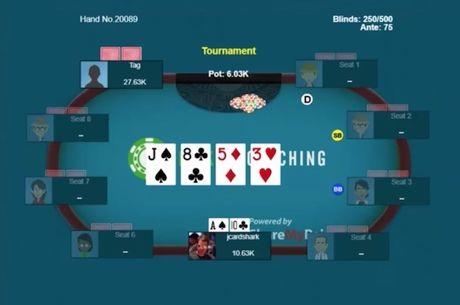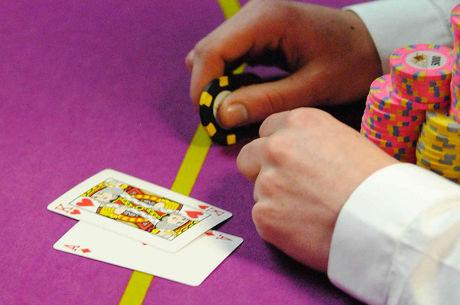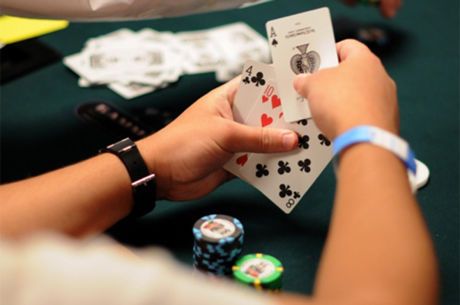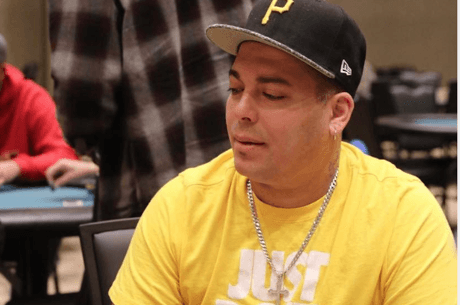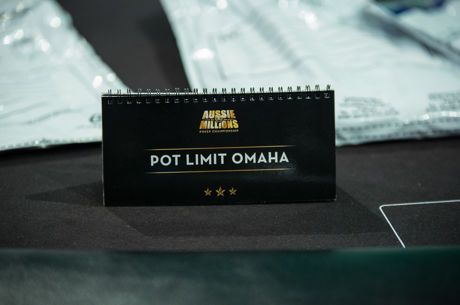Transitioning from No-Limit Hold'em to Pot-Limit Omaha
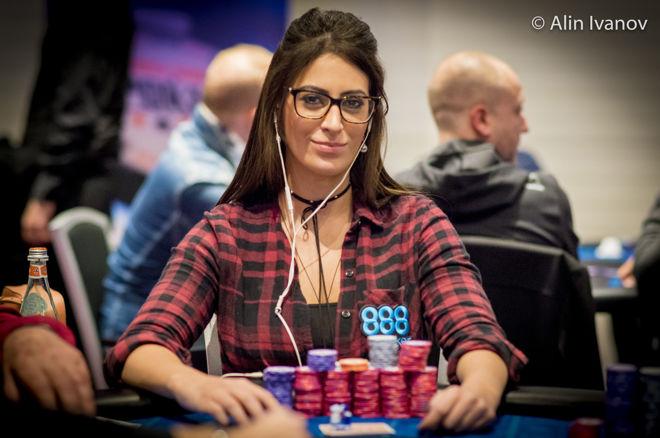
While 888poker Amabassador Vivian "Vivi" Saliba has enjoyed tournament success in no-limit hold'em — including cashing in both the WSOP Main Event and WSOP Europe Main Event last year — pot-limit Omaha is the Brazilian pro’s favored game. During 2017 she made multiple PLO final tables while also finishing 11th in the $10,000 Pot-Limit Omaha 8-Handed Championship at the 2017 WSOP. Today she shares tips for hold'em players interested in jumping into PLO, a.k.a. the "action game."
While no-limit hold'em remains the most popular variant of poker, pot-limit Omaha is the game that is growing the most these days. From low to high stakes, PLO has become especially popular as a cash game, and also is usually present in most tournament series schedules.
PLO especially attracts players who are looking for a bigger edge against others. The popularity of hold'em has created many good, solid hold'em players, which makes it more difficult to find such an edge. PLO also attracts a lot of recreational players who are looking for more fun at the tables since it is such an "action game."
In the future, players will become better at PLO as well as at mixed games which are also starting to grow. But now is a good time to improve your PLO game and get out ahead of others.
Differences Between Pot-Limit Omaha and No-Limit Hold'em
One big difference between PLO and NLHE is the use of pot-limit betting. Pot-limit means the highest bet you can make is the amount there is in the pot. Another obvious one is the fact that you start with four cards rather than just two, which affects strategy considerably.
From your four-card hand you must use two cards to go with three of the community cards in order to make a five-card poker hand. That means if the board is showing four spades and you only have the A♠ and no other spade in your hand, you don't have a flush.
With four cards from which to choose two, you will have several different possible combinations with which to make hands — but so will your opponents!
All of these differences mean that in PLO you will encounter a very different dynamic than is the case with NLHE. There are different preflop ranges in PLO, and in fact the game is basically a "postflop game." That means developing different fundamentals in order to become a strong PLO player.
Tips to Become a Good PLO Player
Here are 10 tips to help hold'em players who are making the transition to pot-limit Omaha — all "dont's" highlighting things you should try to avoid when playing PLO.
1. Don't Play Hold'em With 4 Cards
People who are transitioning from hold'em to pot-limit Omaha often just jump into the game without any study. They don't inform themselves about the differences between the games, thinking they are basically the same. Don't make that mistake!
2. Don't Overplay Your Big Pairs
It's good to get aces or kings in PLO, but everything will depend on the texture of the board and how many players you are facing. It's very common to see people hanging themselves with AxAxXxXx and KxKxXxXx.
3. Don't Play When Short-Stacked
One of the principles of pot-limit Omaha is to defend your hands by making your opponents fold their equity. You will also need chips to build believable plays and play your blockers.
4. Don't Play from Out of Position
In both hold'em and pot-limit Omaha, playing from out of position is generally a bad idea. In PLO it's a horrible idea, because often you'll be exploited by your opponent and/or your hand will become "face up."
5. Don't Play Above Your Bankroll
Sometimes new PLO players will discover a good game with bad players at a level higher than their usual game — one for which they aren't properly bankrolled. It's tempting to think your edge in the game will overcome your lack of bankroll, but don't give into the temptation — you'll go broke if you do. The best strategy is to grind it up little by little.
6. Don't Gamble
Even though many starting hands in PLO have similar equities, whoever plays better will win more over the long term. That means you should try your best to play a disciplined game and according to the odds.
7. Don't Tilt
Swings are normal in all poker games, but especially in PLO. Keep in mind that hands that are over and done with are in the past — don't let them effect you going forward. Have emotional balance and a good mindset.
8. Don't Unnecessarily Inflate the Pot
If you don't have a really strong hand but you do have many backdoors and chances to improve, you shouldn't make bets where if you get raised you will have to fold your equity and lose money.
9. Don't Play Every Hand
With four cards you might think you can play more hands in PLO, but realize the difference between good and bad starting hands. Starting hand selection is crucial in PLO. Remember, all four cards should "work together" to create different (and strong) combinations (no "danglers"!).
10. Don't Commit Yourself Without Defense
Backdoors and redraws are essential in this game. You should be able to improve your hand and also to fold strong hands when a scary card comes. Remember you have four cards, but so do your opponents.


